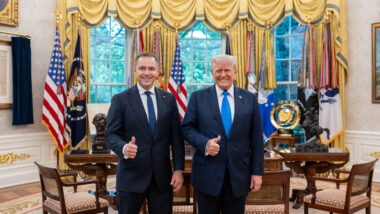Im NewYorker ist ein interessanter Artikel über Free-Trade-Agreements und dem Export von (US)-Geistigen Eigentums-Gesetzgebungen zu finden: Exporting I.P..
The great irony is that the U.S. economy in its early years was built in large part on a lax attitude toward intellectual-property rights and enforcement. As the historian Doron Ben-Atar shows in his book “Trade Secrets,” the Founders believed that a strict attitude toward patents and copyright would limit domestic innovation and make it harder for the U.S. to expand its industrial base. American law did not protect the rights of foreign inventors or writers, and Secretary of the Treasury Alexander Hamilton, in his famous “Report on Manufactures,” of 1791, actively advocated the theft of technology and the luring of skilled workers from foreign countries. Among the beneficiaries of this was the American textile industry, which flourished thanks to pirated technology. Free-trade agreements that export our own restrictive I.P. laws may make the world safe for Pfizer, Microsoft, and Disney, but they don’t deserve the name free trade.




Das ist doch nichts neues, oder?
Das gleiche passierte und passiert auch mit China, und war ebenfalls der Fall in Japan: zu erst ignoriert man fremdes IP, und wenn es einem dann selbst gut geht, führt man es wieder ein. Damit andere nicht zu schnell aufholen.